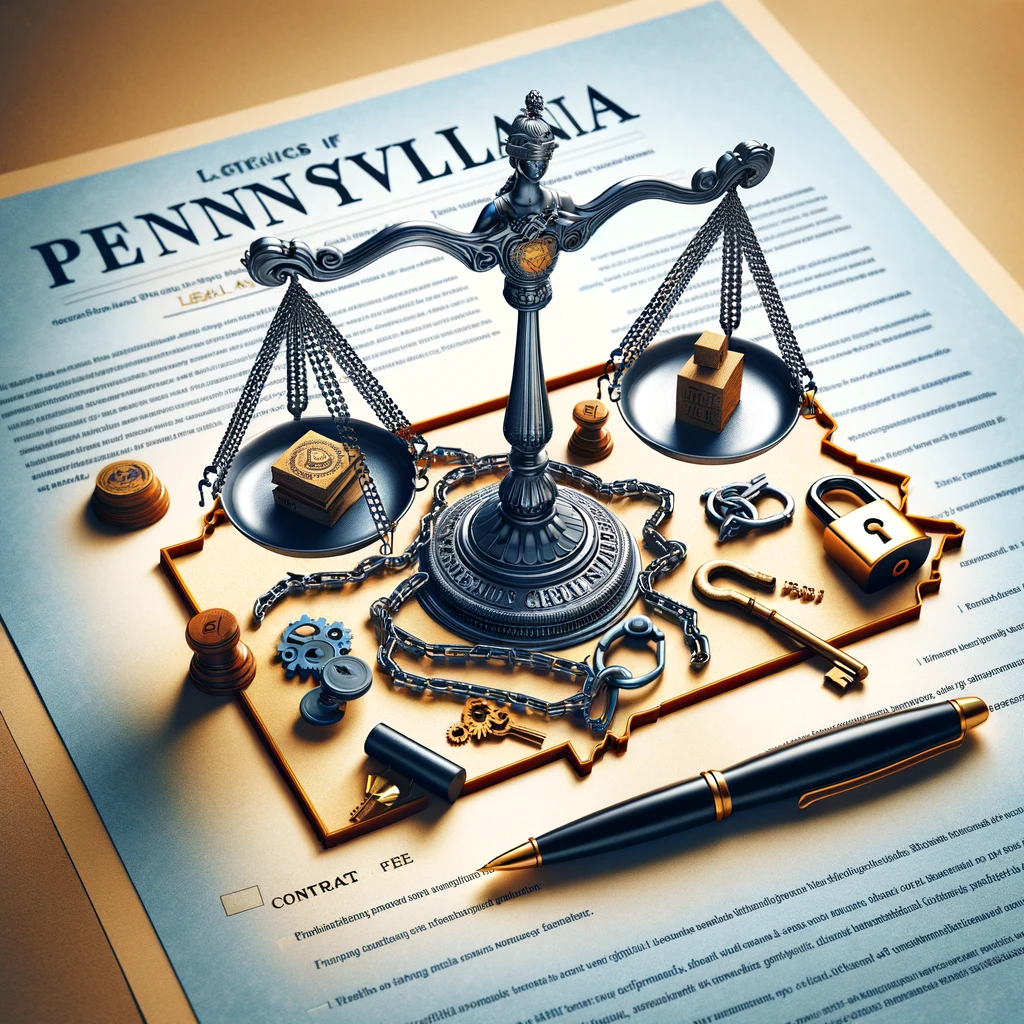Understanding Non-Compete Clauses in Pennsylvania: A Legal Guide
In the competitive landscape of business, non-compete clauses have emerged as a pivotal legal tool for employers seeking to protect their proprietary interests and prevent unfair competition. In Pennsylvania, as in many states, the enforceability of non-compete agreements is subject to specific legal criteria that balance protecting business interests with preserving employees' rights to work and move freely within their industry. This comprehensive guide delves into the nuances of non-compete clauses in Pennsylvania, outlining their legal framework, enforceability, and implications for both employers and employees.

Legal Framework Governing Non-Compete Clauses in Pennsylvania
Non-compete clauses in Pennsylvania are governed by state case law rather than specific statutes. The Pennsylvania courts have established that, while not inherently illegal, non-compete agreements must be reasonably limited in scope, duration, and geographic area to be enforceable. The primary aim is to ensure these agreements serve legitimate business interests without unduly restricting an individual's employment opportunities.
For an in-depth understanding of the legal standards applied to non-compete clauses in Pennsylvania, resources such as the Pennsylvania Bar Association's website (PABar.org) offer valuable insights.
Criteria for Enforceability
To be enforceable in Pennsylvania, a non-compete clause must meet the following criteria:
Connection to an Employment Relationship: The non-compete agreement must be ancillary to an employment relationship, typically established at the commencement of employment or during significant changes such as promotions or new assignments.
Reasonable Duration and Geographic Scope: The restrictions imposed by the clause must be limited to what is necessary to protect the employer's legitimate business interests, such as trade secrets, confidential information, and customer relationships.
Consideration: There must be a tangible benefit to the employee in exchange for agreeing to the non-compete restrictions, beyond mere continuation of employment for existing employees.
The University of Pennsylvania Law School (Law.UPenn.edu) provides further academic analysis and case studies on the topic.
Balancing Interests
The enforceability of non-compete clauses in Pennsylvania reflects a careful balancing act:
Employers' Interests: Protecting business secrets, maintaining customer relationships, and securing investments in employee training.
Employees' Rights: Ensuring individuals can pursue their careers and livelihoods without unreasonable constraints.
Drafting and Negotiating Non-Compete Agreements
For Employers: To draft an enforceable non-compete agreement in Pennsylvania, it's crucial to:
Clearly define the business interests being protected.
Limit the scope, duration, and geographic area to reasonable bounds.
Provide adequate consideration, especially for existing employees.
For Employees: When negotiating a non-compete agreement, consider:
The potential impact on future employment opportunities.
The specificity of the terms, seeking clarification and adjustments as necessary.
Legal counsel to understand the implications and negotiate fair terms.
The Pennsylvania Department of Community and Economic Development offers guidance on business laws and employee rights, which can be a useful resource for both parties.
Legal Challenges and Considerations
Disputes over non-compete clauses often arise during enforcement attempts, with courts scrutinizing the agreement's reasonableness and the circumstances of its inception. Both employers and employees should be prepared to address such challenges, ideally by seeking legal advice from professionals specialized in employment law.

Create & Review Your Contracts 10x Quality and Ease
Lawyer-level AI handles all your contract needs, with real lawyers providing safeguarding support

Conclusion
Non-compete clauses in Pennsylvania serve as a critical legal mechanism for balancing the protection of business interests with the preservation of employee mobility. By adhering to established legal criteria and engaging in fair negotiation practices, both employers and employees can navigate the complexities of non-compete agreements, ensuring mutual benefit and legal compliance.
For ongoing developments and legal commentary on non-compete agreements in Pennsylvania, legal blogs such as Jurist.org and academic publications from institutions like Penn State Law provide up-to-date information and insights.

